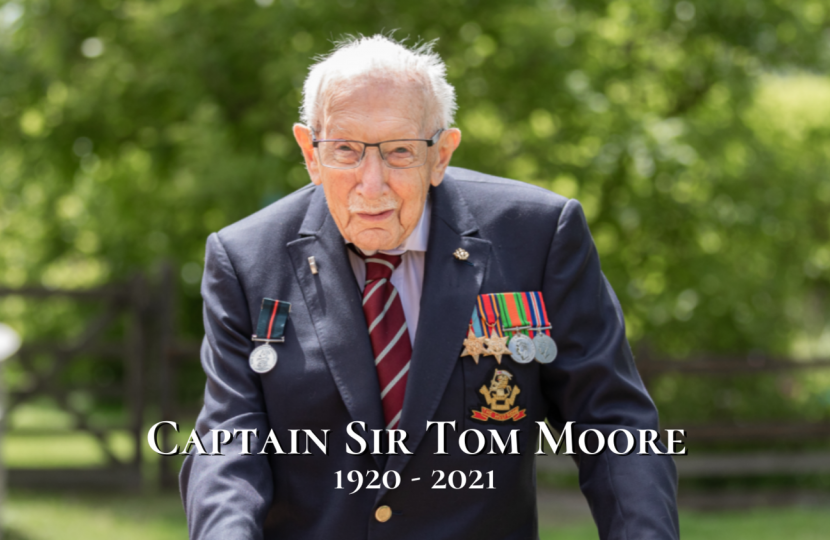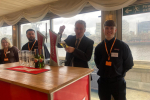
The article below was written by Damian and published in this week's Petersfield Post and Herald editions:
"The impact Captain Sir Tom had in the final year of his life was simply extraordinary. Beyond the millions of pounds he raised through his perseverance, he reminded us all of the power of hope: “tomorrow will be a good day”.
The Captain Tom Foundation is now working with partners and through community initiatives to help others see and believe there is hope, including through the work of mental health charity Mind.
Combating loneliness is one the causes the Foundation is most keen to tackle. The isolation felt by so many people during this pandemic has been acute. Togetherness is at the heart of being human.
In recent years there has been a growing understanding of and focus on mental health. We have legislated to ensure it is treated with the same importance as physical health.
Mental health is on the agenda of ministers, local authorities, employers, headteachers, university vice-chancellors and charities, as well as the NHS.
But Covid has heightened appreciation of importance of mental health still further.
It was Time to Talk Day last week, encouraging all of us to be more open about mental health –highlighting that a small conversation has the power to make a big difference.
Children’s Mental Health Week was last week too. We know the strain that lockdowns, and the anxiety of a pandemic, have brought to a lot of young people.
We should also note the resilience and adaptability youngsters have been showing, even as all their routines and plans have been disrupted.
Locally, Young Minds and Hampshire Child and Adolescent Mental Health Services (CAMHS) provide information and support for parents, carers and young people.
Havant and East Hants Mind is also running a Children and Young People’s Crisis Line support service for those aged 11 to 17 years old.
And Hampshire County Council’s Educational Psychology Team provides expertise, training and support to schools, and operates a phone contact line which parents and carers, as well as teachers and other professionals working with children, can call for advice.
When we do get fully back to school, mental health and well-being support will be at the fore.
The infrastructure has been developing especially since the children and young people’s mental health Green Paper in 2017. A network of support teams is being built up to work with schools, and more mental health ‘first aid’ training.
During my time as Education Secretary, we extended this, and initiated what is believed to be the biggest trial ever of mental health support methods, woven into regular schooling. And health education became a mandatory subject, to include learning about mental as well as physical health.
Right now, everyone is rightly conscious that a lot of people’s normal support networks are simply not available, and pressure release valves out of reach.
The NHS’s ‘Every Mind Matters’ offers tips and tools, including specific advice for parents and young people.
For parents the tips include: to be clear about what’s happening, but to limit news and conversation about coronavirus, to create new routines, and to keep active. And of course it stresses the key roles of healthy eating and enough sleep.
The programme also reminds parents to look after their own mental health and seek support if needed. It’s the old advice: fit your own oxygen mask first – then you’re better able to help others."


